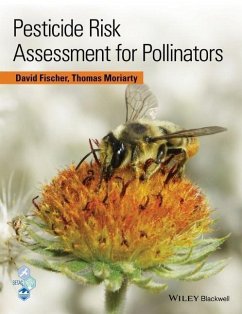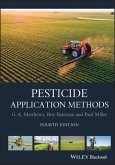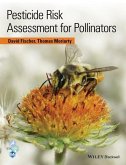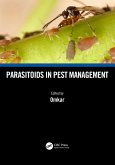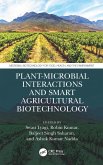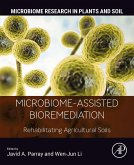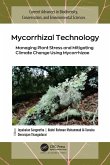List of Figures xi
List of Tables xv
Acknowledgments xvii
About the Editors xix
Workshop Participants xxi
Pellston Workshop Series xxv
Chapter 1 Introduction 1
1.1 Workshop Balance and Composition 2
Chapter 2 Overview of the Honey Bee 3
J. Pettis
2.1 Overview of Honey Bee Biology 3
Chapter 3 Overview of Non-Apis Bees 5
M. Vaughan, B.E. Vaissi`ere, G. Maynard, M. Kasina, R.C.F. Nocelli, C.
Scott-Dupree, E. Johansen, C. Brittain, M. Coulson, and A. Dinter
3.1 Introduction 5
3.2 Non-Apis Bee Biology and Diversity 7
3.3 Opportunities for Non-Apis Bees to Inform Pollinator Risk Assessment 12
3.4 Conclusions 12
References 14
Chapter 4 Overview of Protection Goals for Pollinators 19
T. Moriarty, A. Alix, and M. Miles
4.1 Introduction 19
4.2 Elements and Proposed Protection Goals 20
4.3 Linking Protection Goals with Assessment Endpoints 21
4.4 Protection Goals and Monitoring 22
4.5 Conclusion 22
Reference 23
Chapter 5 Overview of the Pesticide Risk Assessment and the Regulatory
Process 25
C. Lee-Steere and T. Steeger
5.1 Introduction 25
5.2 Current Approach for Assessing Effects of Pesticide Products to
Pollinators 26
References 27
Chapter 6 Problem Formulation for an Assessment of Risk to Honey Bees from
Applications of
Plant Protection Products to Agricultural Crops 29
D. Fischer, A. Alix, M. Coulson, P. Delorme, T. Moriarty, J. Pettis, T.
Steeger, and J.D. Wisk
6.1 What Is Problem Formulation? 30
6.2 Case 1: Problem Formulation for a Systemic Chemical Applied to the
Soil, or as a Seed-Dressing 35
6.3 Case 2: Problem Formulation for a Contact Chemical Applied as a Foliar
Spray 39
References 44
Chapter 7 Assessing Exposure of Pesticides to Bees 45
J.D.Wisk, J. Pistorius, M. Beevers, R. Bireley, Z. Browning, M.P. Chauzat,
A. Nikolakis, J. Overmyer, R. Rose, R. Sebastien, B.E. Vaissi`ere, G.
Maynard, M. Kasina, R.C.F. Nocelli, C. Scott-Dupree, E. Johansen, C.
Brittain, M. Coulson, A. Dinter, and M. Vaughan
7.1 Introduction 46
7.2 Potential Routes of Exposure for Non-ApisBees 49
7.3 Methods and Models for Estimating Exposure of Bees to Pesticides 54
7.4 Physical and Chemical Properties of Pesticide Active Ingredients Which
Affect Exposure 55
7.5 Information Needed to Develop Refined Predictive Exposure Models 56
7.6 Predicted Contact Exposure for Foliar-Applied Products 56
7.7 Predicted Dietary Exposure for Foliar-Applied Products 59
7.8 Predicted Exposure for Soil and Seed Treatment Systemic Compounds 61
7.9 Predicted Exposure for Tree-Injected Compounds 62
7.10 Measuring Pesticides in Matrices Relevant for Assessing Exposure to
Bees 62
7.11 Higher Tier Studies to Assess Exposure of Pesticides to Bees 63
7.12 Health of Honey Bee Colonies Can Influence Exposure 65
7.13 Higher Tier Studies with Non-Apis Bee Species 65
7.14 Summary and Recommendations 68
References 70
Chapter 8 Assessing Effects Through Laboratory Toxicity Testing 75
J. Frazier, J. Pflugfleder, P. Aupinel, A. Decourtye, J. Ellis, C.
Scott-Dupree, Z. Huang, H. Thompson, P. Bachman, A. Dinter, M. Vaughan,
B.E. Vaissi`ere, G. Maynard, M. Kasina, E. Johansen, C. Brittain, M.
Coulson, and R.C.F. Nocelli
8.1 Introduction 75
8.2 Overview of Laboratory Testing Requirements Among Several Countries 77
8.3 Uncertainties in Current Testing Paradigms 78
8.4 Limitations and Suggested Improvements for Tier 1 Testing 79
8.5 Adult Oral Chronic Toxicity-Apis Bees 83
8.6 Honey Bee Brood Tests in the Laboratory 83
8.7 Adult Toxicity Testing with Non-Apis Bees 84
8.8 Sublethal Effects and Test Developments 86
8.9 Conclusions 91
References 91
Chapter 9 Assessing Effects Through Semi-Field and Field Toxicity Testing
95
J. Pettis, I. Tornier, M. Clook, K. Wallner, B. Vaissiere, T. Stadler, W.
Hou, G. Maynard, R. Becker, M. Coulson, P. Jourdan, M. Vaughan, R.C.F.
Nocelli, C. Scott-Dupree, E. Johansen, C. Brittain, A. Dinter, and M.
Kasina
9.1 Introduction 96
9.2 Definition of Semi-Field and Field Studies 97
9.3 Design of a Semi-Field Study 97
9.4 Outline of a Semi-Field Study for Apis and Non-Apis Bees 101
9.5 Design of a Field Study 108
9.6 Outline of a Field Study for Apis and Non-Apis Species 108
9.7 Role of Monitoring and Incident Reporting 116
9.8 Summary 118
References 118
Chapter 10 Overview of a Proposed Ecological Risk Assessment Process for
Honey bees
(Apis mellifera) and Non-Apis Bees 121
A. Alix, T. Steeger, C. Brittain, D. Fischer, R. Johnson, T. Moriarty, E.
Johansen, F. Streissel, R. Fischer, M. Miles, C. Lee-Steere, M. Vaughan, B.
Vaissiere, G. Maynard, M. Kasina, R.C.F. Nocelli, C. Scott-Dupree, M.
Coulson, A. Dinter, and M. Fry
10.1 Introduction 122
10.2 Protection Goals, Assessment and Measurement Endpoints, Trigger Values
for Transitioning to Higher Levels of Refinement, and Risk Assessment
Terminology 125
10.3 Risk Assessment Flowcharts 127
10.4 Spray Applications 132
10.5 Soil and Seed Treatment Applications for Systemic Substances 134
10.6 Screening-Level Risk Assessments (Tier 1) 135
10.7 Factors Limiting Certainty in Screening Assessments 135
10.8 Refinement Options for Screening-Level Risk Assessment 136
10.9 Conclusions on the Risks and Recommendations 144
10.10 Recommending Risk Mitigation Measures 145
10.11 Additional Tools in Support of Risk Assessment and to Inform
Risk Management 146
References 146
Chapter 11 Ecological Modeling for Pesticide Risk Assessment for Honey Bees
and Other Pollinators 149
V. Grimm, M.A. Becher, P. Kennedy, P. Thorbek, and J. Osborne
11.1 Introduction 149
11.2 Example Model: Common Shrew 150
11.3 Rationale and Approaches of Mechanistic Effect Modeling 152
11.4 Modeling Practice for Risk Assessment 154
11.5 Existing Models of Pollinators 155
11.6 Discussion 159
References 160
Chapter 12 Data Analysis Issues 163
W. Warren-Hicks
12.1 Study Duration 163
12.2 Replicates and Dosing 163
12.3 Long-Term Tests 164
12.4 Statistical Models 164
Chapter 13 Risk Mitigation and Performance Criteria 165
E. Johansen, M. Fry, and T. Moriarty
13.1 The Role of Risk Management in Pollinator Protection 165
13.2 Regulatory Risk Mitigation Methods167
13.3 Non-Regulatory Risk Mitigation Methods 169
13.4 Suggested Techniques to Mitigate Risks to Other Species of Bees 170
13.5 Pesticide Application Technologies to Mitigate Exposure to Bees 171
References 172
Chapter 14 Recommendations for Future Research in Pesticide Risk Assessment
for Pollinators 173
14.1 Exposure 173
14.2 Effects 175
References 177
Appendix 1 Elements for a Chronic Adult Oral Toxicity Study 179
Appendix 2 Elements of a Larval Study 181
Appendix 3 Elements of Artificial Flower Test 187
Appendix 4 Elements of theVisual Learning Test 189
Appendix 5 Foraging Behavior with Radio Frequency Identification 193
Appendix 6 Detailed Description of the Proposed Overall Risk Assessment
Scheme 195
Glossary of Terms 209
Index 211
Color plate section is located between pages 120 and 121.

